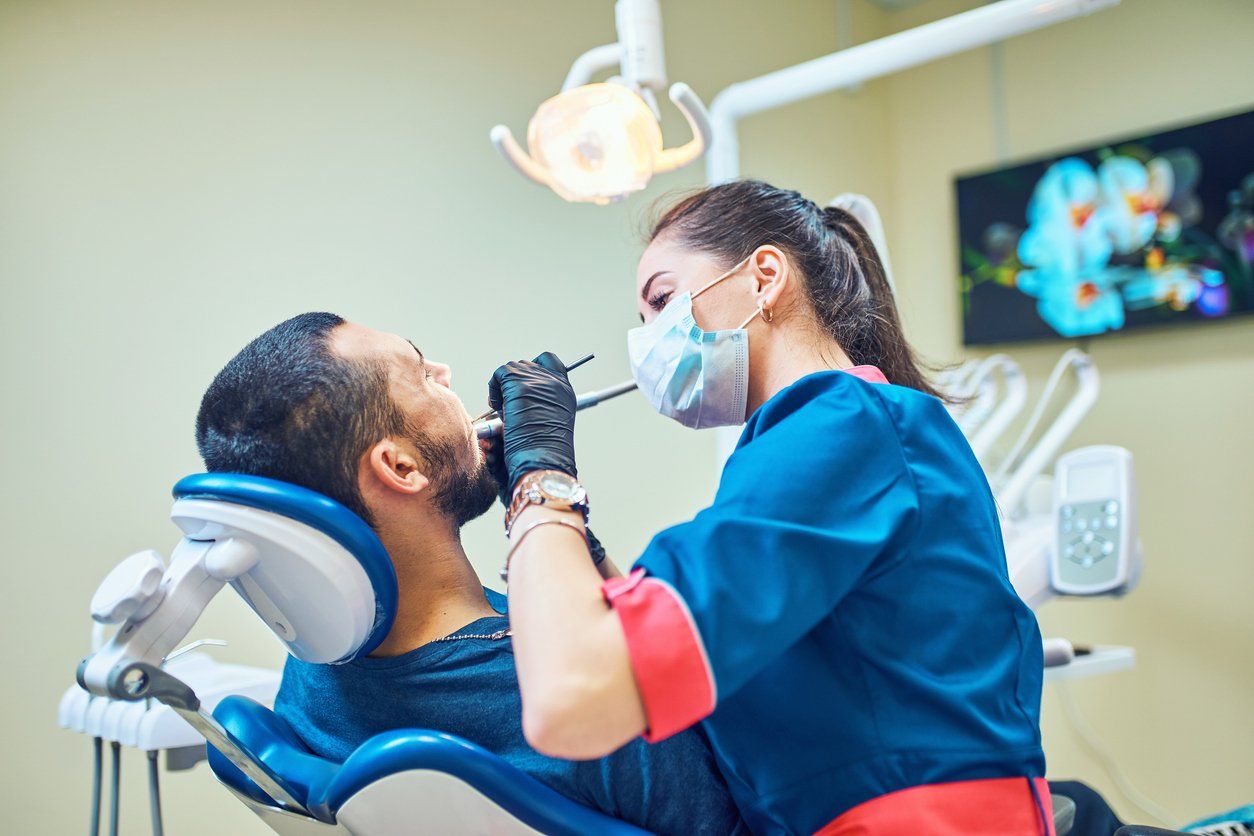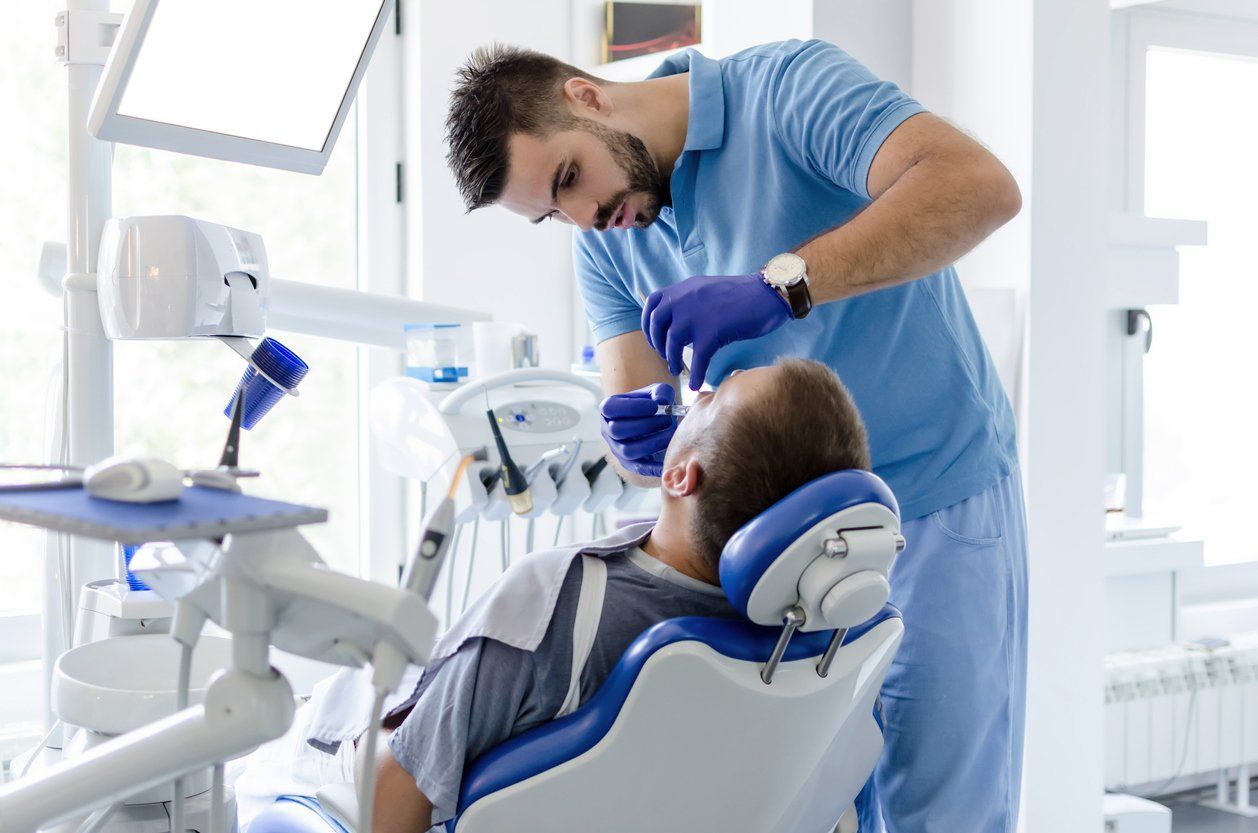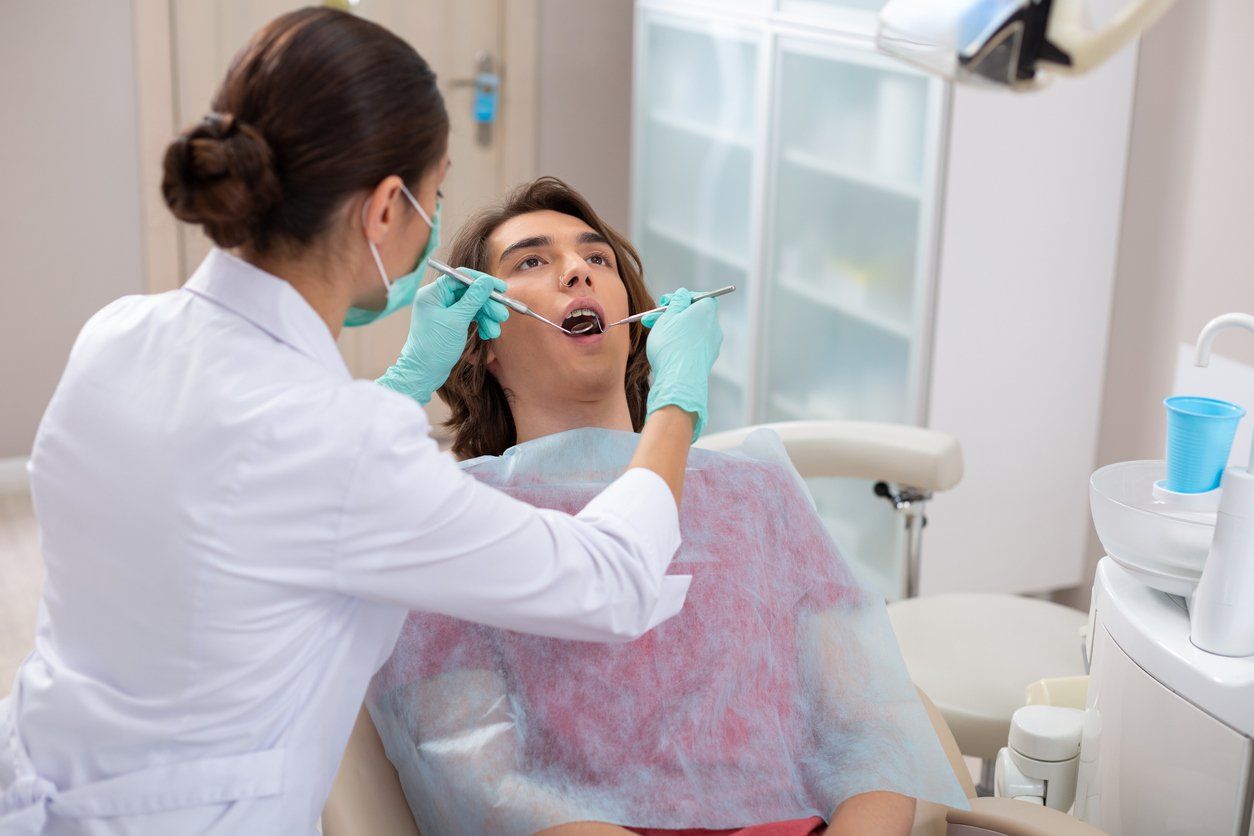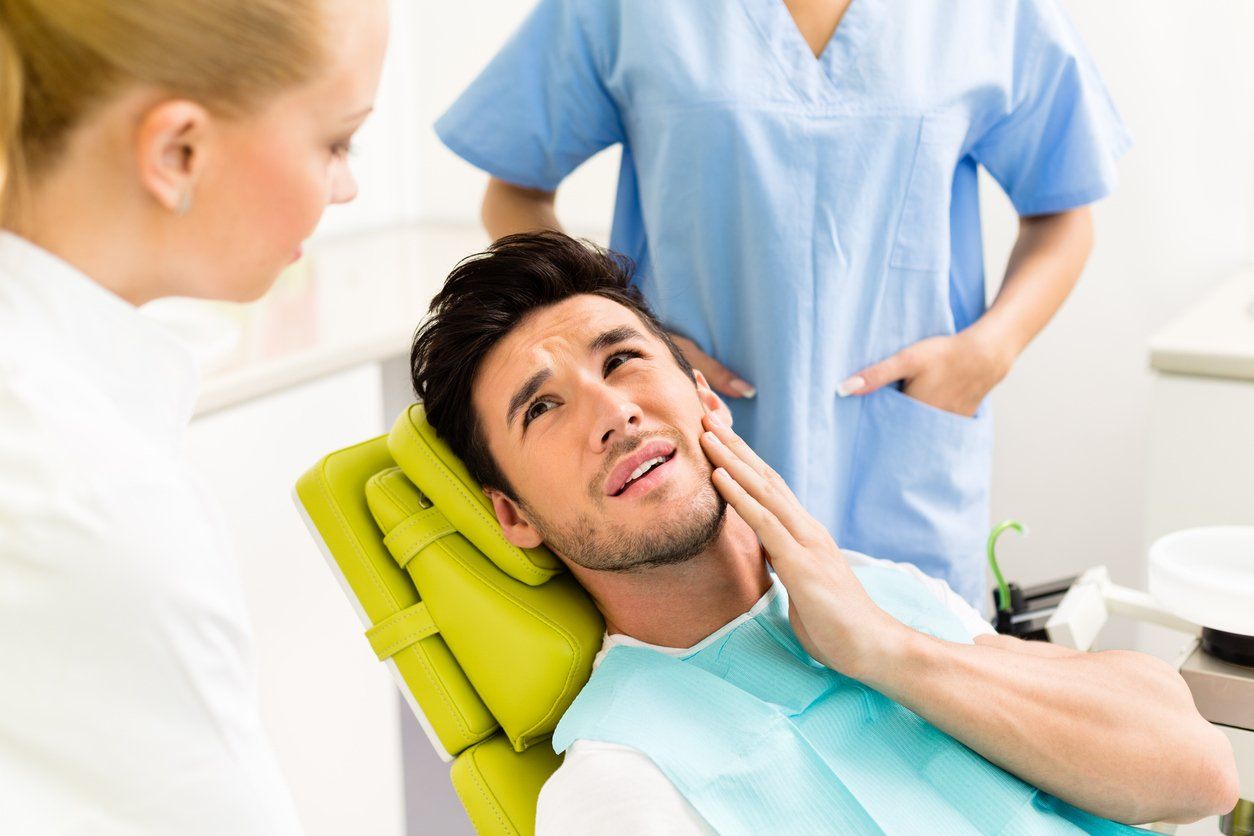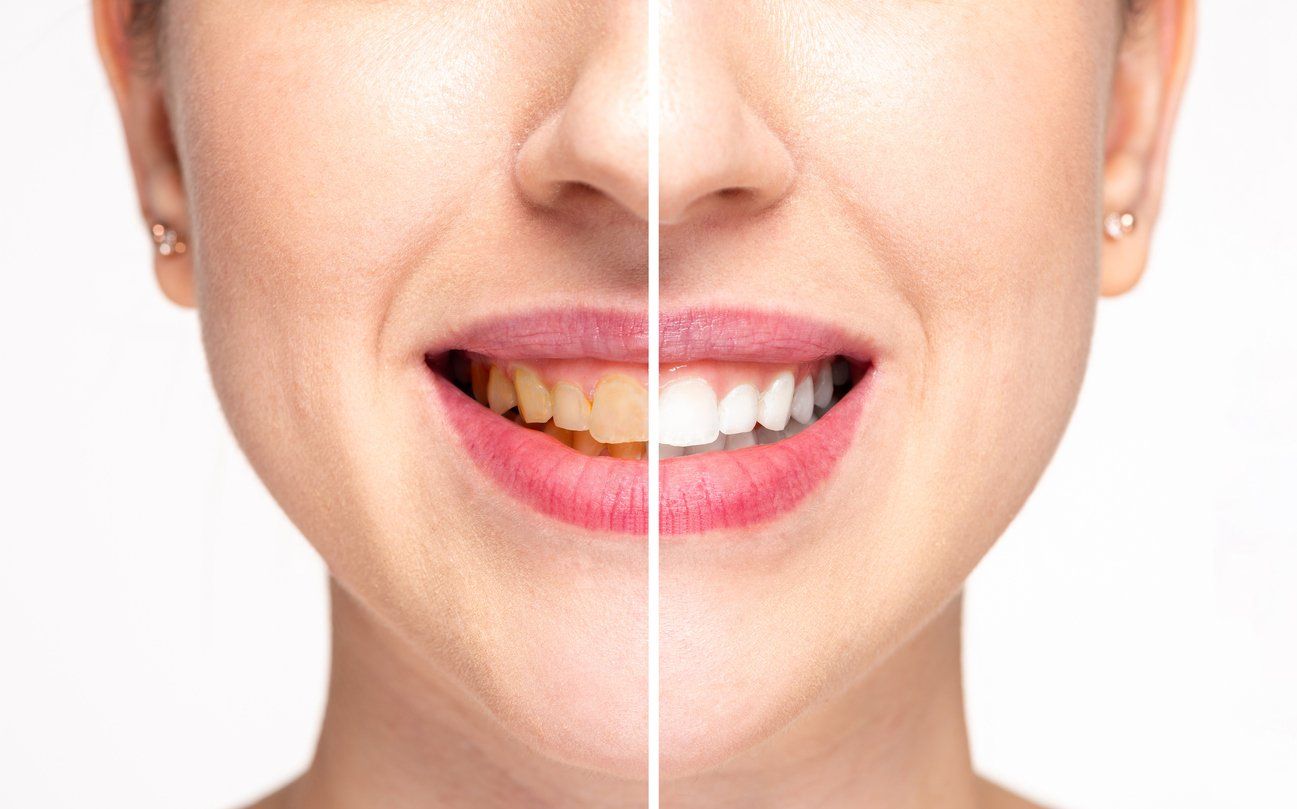At Home & In the Dentist's Office: Keeping Your Mouth in Great Shape
- By Marie Simon Dentistry
- •
- 04 Jan, 2019
- •
Aside from preserving a beautiful smile for life, dental care and oral hygiene is essential for overall health. Tooth decay and gum disease can lead to major health issues, costly procedures, and premature tooth loss.
Luckily, with a combination of good oral hygiene techniques and routine visits with your dentist, you can keep your teeth and gums strong and healthy. Let's take a look at some tips, tricks, and best standards for keeping your mouth in great shape.
Importance of Good Oral Hygiene
Let's break down some of the basics of oral health. First of all, it's important to realize that every day, a thin film of bacteria develops on the outside surface of your teeth (enamel). This film is known as plaque, and when left on the surface of the teeth, it can form a very hard substance known as tartar or calculus that can only be removed by a dentist. Let's take a look at how untreated plaque and tartar damage teeth and gums:
- Tooth decay. When the bacteria in plaque interacts with starches from the food and beverages we consume, it results in acids. If we don't practice good oral hygiene by brushing and flossing, these acids can eat away the layers of our enamel, eventually leading to tooth decay and cavities.
- Gum disease. If plaque develops into tartar that accumulate at the gum line, it damages the gums and contributes to gum disease. Untreated gum disease can lead to serious issues: infections, damage to your bone and gums, and lost teeth.
Oral Health & Overall Health
It's impossible to separate your oral health from the health of the rest of your body. Incredibly, adults in the U.S. lose 164 millions hours of work annually due to poor oral health. If you don't keep your mouth in shape, you're actually at increased risk for some of the following health issues:
- Cardiovascular issues
- Respiratory infections
- Alzheimer's disease & dementia
- Complications from diabetes
Keeping Your Mouth in Shape: Brushing, Flossing, and Rinsing
Clearly, it's vital to maintain excellent oral hygiene to keep your teeth, gums, and overall health in check. Limiting sugary foods and beverages helps maintain better oral health. And when it comes to establishing good habits, make sure you follow the following tips:
Brushing

When you brush your teeth, you're helping to remove the plaque and bacteria that lead to decay and cavities. It also stimulates the gums, which helps to keep them in better health. Here's how to brush the right away:
- Frequency. Brush your teeth at least twice a day.
- Toothbrush. Use a soft-bristled brush that fits the shape of your mouth.
- Time. Set a timer or check the clock to brush for at least 2 minutes.
- Technique. Place your brush at a 45 degree angle to your teeth when you brush and make sure to address every surface: outer, inner, and the chewing surface as well. To brush the inside of your front teeth, tilt the brush vertically and make an up-and-down movement.
- Toothpaste. Use a fluoride toothpaste to help prevent cavities.
Flossing
Another vital component for a healthy mouth, flossing is unfortunately skipped by many people. By flossing at least once daily, you help to prevent the buildup of plaque in between your teeth and along your gum line. Here's how to floss correctly:
- Break off about 18 inches of floss.
- Hold the floss taut between your thumbs and pointer fingers.
- Gently guide the floss in between your teeth.
- Curve it into a C shape at your gum line to ensure that you're cleaning between the tooth and the gum.
- At each tooth, hold the floss against the tooth's surface then gently rub up the side of each tooth for 8 to 10 strokes to remove bacteria and food.
- When you're done, throw the floss away.
Rinsing
Though nothing takes the place of brushing and flossing, it's a great idea to rinse your mouth out after eating and after drinking coffee, red wine, or sugary beverages. If you're on the go and don't have a toothbrush, rinse your mouth out after meals to get rid of any large food particles.
Special mouthwashes that are approved by the American Dental Association can provide some additional benefits in preventing cavities and fighting bad breath.
What to Expect at a Routine Dental Visit
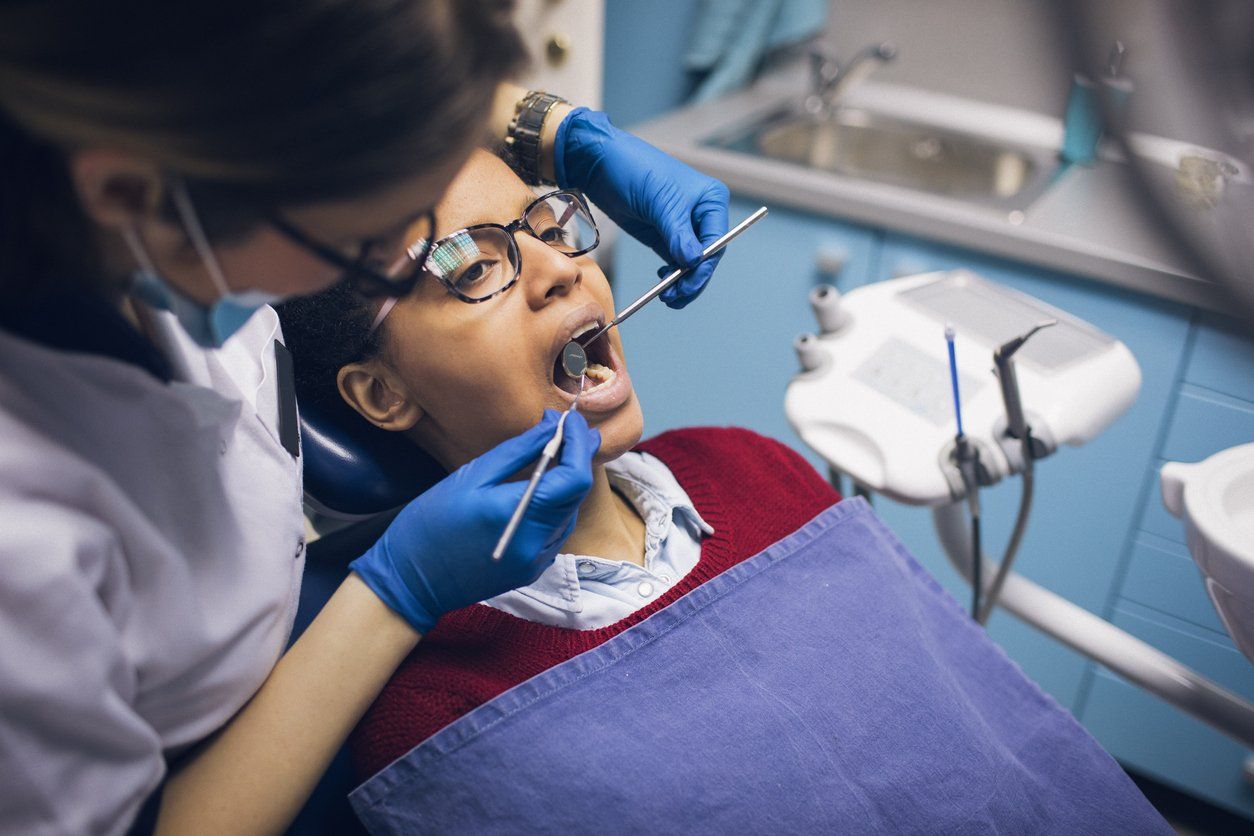
Brushing, flossing, and other good oral health habits are important — but it's absolutely pivotal to combine at-home care with routine dental visits. Preventative dentistry seeks to keep your teeth and gums healthy, tartar-free, and clean. In general, here are some elements you should probably expect from a general dentistry visit:
- X-Rays. If you're going to a new dentist for the first time, you'll probably have x-rays taken of your mouth and gums. This powerful diagnostic tool allows your dentist to see if there are any areas of damage or decay in your mouth. Once the X-Ray is taken, they'll know how best to proceed. From the first visit onward, your dentist will decide how frequently you need to have X-Rays taken, as this depends on your age and oral health.
- Examination. Aside from the X-Ray, your dentist will also perform a thorough physical examination of your mouth and teeth. As part of the exam, they'll check your teeth for cavities, and look at your gums for signs of gum disease. Additionally, they'll look for other issues like cancer, check your jaw and bite health, and examine the overall health of your mouth.
- Discussion. One of your dentist's major goals is to empower you to keep your mouth healthy in between visits. Therefore, they'll definitely ask you a bunch of questions on your general oral health that will help them get a better overall impression. Then, they'll offer you recommendations and even demonstrate proper brushing or flossing techniques if necessary.
- Cleaning. Since the build-up of plaque and tartar is what causes cavities and gum disease, your routine dental visit will probably include a dental cleaning. During this process, your dentist or dental hygienist uses special tools to scrape away the plaque that has accumulated on your teeth. As an added bonus, they also polish stains and dullness so you'll emerge with cleaner, brighter teeth.
What is the Cost of an Average Dental Visit?
In general, a basic dental exam can cost $50-$200. Keep in mind that this number varies considerably from dentist to dentist. In addition, the cost of the session will vary based on whether or not you're getting x-rays and a tooth cleaning during the session.
Luckily, dental insurance will often cover a significant portion of your preventative dental care. Also, keep in mind that some dental practices offer special introductory rates for new patients. Make sure to discuss your payment options with your dental office ahead of time so you know what to expect.
Schedule Your Consultation Today
At Marie Simon Dental, we specialize in providing tailored, customized preventative health services to our customers. From X-Rays to tooth cleanings to oral health education, our goal is to provide each of our patients will the tools to keep their smiles healthy, bright, and clean. To schedule a consultation or a routine visit, please contact us today.
440-517-4096
All Rights Reserved | Marie Simon Dentistry

